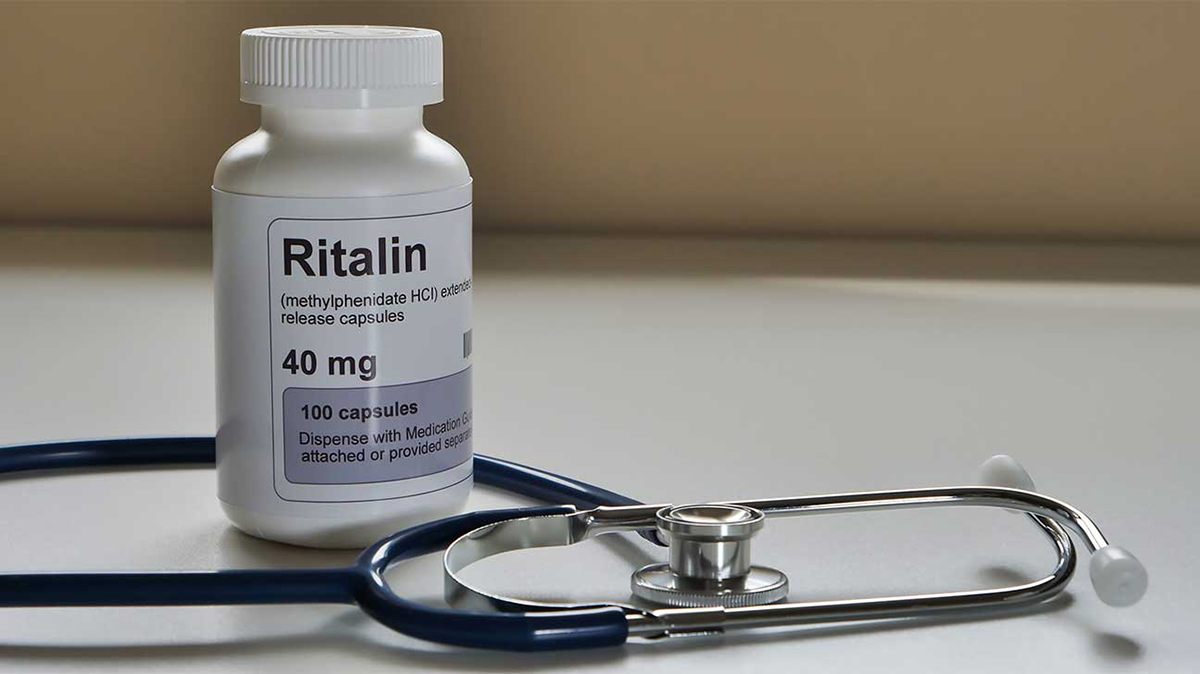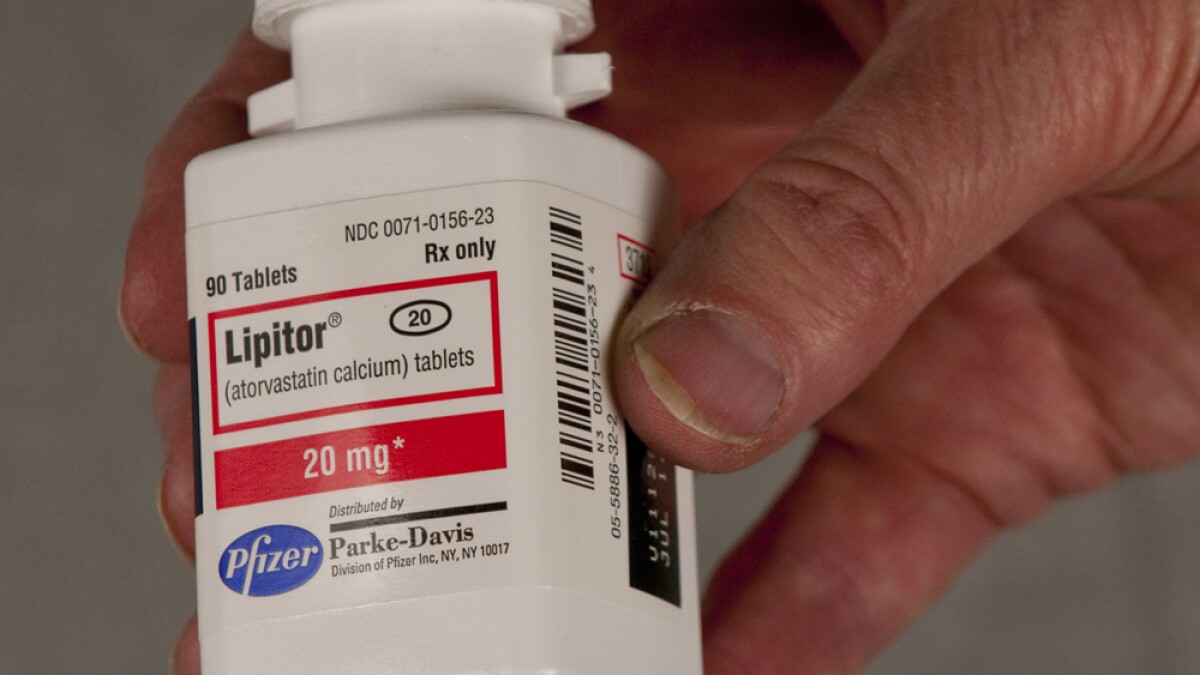

Finance
How Much Is Seroquel Without Insurance?
Published: November 19, 2023
Find out the cost of Seroquel without insurance and manage your finances effectively. Learn how to save on your medication expenses today.
(Many of the links in this article redirect to a specific reviewed product. Your purchase of these products through affiliate links helps to generate commission for LiveWell, at no extra cost. Learn more)
Table of Contents
Introduction
Welcome to the world of Seroquel and the quest to understand its cost without insurance coverage. Seroquel, also known by its generic name quetiapine, is a medication commonly prescribed to treat conditions such as schizophrenia, bipolar disorder, and major depressive disorder. It belongs to a class of medications known as atypical antipsychotics and works by balancing certain chemicals in the brain.
Having a medical condition that requires ongoing treatment can be financially burdensome, and the price of prescription medications can play a significant role in how accessible these treatments are to patients. This is where insurance coverage comes into play, providing much-needed financial assistance in covering the cost of medications like Seroquel.
However, not everyone has insurance coverage, and the question of how much Seroquel costs without insurance becomes crucial. Without insurance, individuals are responsible for the total cost of their medications, which can be a significant expense. The purpose of this article is to explore the average cost of Seroquel without insurance, factors influencing its price, and options for saving money.
It is important to note that the information provided in this article is for educational purposes only and should not replace professional medical advice. If you have questions or concerns about your specific medical condition or the cost of Seroquel, consult with your healthcare provider or pharmacist.
What is Seroquel?
Seroquel, or quetiapine, is a prescription medication that belongs to a class of drugs known as atypical antipsychotics. It is primarily used to treat psychiatric conditions such as schizophrenia, bipolar disorder, and major depressive disorder.
Seroquel works by affecting the balance of certain neurotransmitters in the brain, including dopamine and serotonin. These neurotransmitters play a crucial role in regulating mood, behavior, and cognition. By modulating their activity, Seroquel helps manage the symptoms associated with various mental health conditions.
When prescribed for schizophrenia, Seroquel can help alleviate hallucinations, delusions, and thought disturbances. In bipolar disorder, it can help stabilize mood swings, reducing episodes of mania and depression. For major depressive disorder, Seroquel may be used as an adjunctive treatment when other antidepressants have not been effective.
Seroquel is available in various forms, including immediate-release tablets, extended-release tablets, and oral suspension. The dosage prescribed may depend on several factors, such as the specific condition being treated, the severity of symptoms, and the individual’s response to the medication.
It is important to follow the prescribed dosage and instructions provided by the healthcare provider. Abruptly stopping Seroquel can lead to withdrawal symptoms and may worsen the underlying condition. If you have any concerns or questions about the medication, consult with your healthcare provider.
Importance of Having Insurance Coverage
Having insurance coverage is incredibly important when it comes to accessing healthcare, including prescription medications like Seroquel. Insurance provides financial protection and can significantly reduce the out-of-pocket costs of medications, making them more affordable and accessible to patients.
Here are some key reasons why having insurance coverage is important:
- Reduced Costs: With insurance coverage, the cost of medications is often significantly lower compared to paying out-of-pocket. Insurance plans negotiate discounted rates with pharmacies and pharmaceutical companies, helping to lower the overall cost of prescription medications.
- Prescription Coverage: Insurance plans typically include coverage for prescription medications, which means that the cost of medications like Seroquel is partially or fully covered. This coverage may also extend to other treatments and therapies related to mental health conditions.
- Access to a Wide Network of Providers: Insurance plans usually come with a network of healthcare providers, including doctors and specialists. This network ensures that patients have access to a wide range of healthcare professionals who can diagnose and prescribe the necessary medications.
- Preventive Care Coverage: Insurance coverage often includes preventive care services, such as mental health screenings and annual check-ups. These services can help identify potential issues early on and prevent more severe conditions from developing.
- Financial Protection: A major benefit of insurance coverage is the protection it offers against unexpected medical expenses. Without insurance, the cost of medications, doctor visits, and treatments can be overwhelming. Insurance provides a safety net, preventing individuals from being burdened by excessive medical costs.
- Peace of Mind: Insurance coverage provides peace of mind, knowing that if a medical need arises, there is a financial safety net in place. This allows individuals to focus on their health and well-being without the added stress of worrying about how to afford necessary medications or treatments.
While insurance coverage offers numerous benefits, it’s important to be aware of the specific terms and conditions of your insurance plan. This includes understanding any copayments, deductibles, and restrictions on coverage. Consulting with your insurance provider and reviewing your policy can help ensure that you are aware of your coverage and can maximize its benefits.
Average Cost of Seroquel Without Insurance
Without insurance coverage, the cost of Seroquel can be quite high, potentially making it difficult for individuals to afford the medication they need. The average cost of Seroquel without insurance can vary depending on factors such as pharmacy location, dosage strength, and formulation (immediate-release or extended-release).
On average, the cost of a 30-day supply of Seroquel 200mg immediate-release tablets can range from $250 to $400. For higher dosages or extended-release formulations, the price can be even higher. It is important to note that these prices are rough estimates and can vary significantly from one pharmacy to another.
Furthermore, it’s important to consider that the cost of Seroquel may also vary depending on whether you purchase the brand-name version or the generic equivalent, quetiapine. Generic medications are typically more affordable than brand-name drugs, and choosing the generic option can help save money.
It is essential to consult with your local pharmacy to get accurate pricing information for Seroquel without insurance. They can provide specific pricing details based on your location and the dosage strength prescribed by your healthcare provider.
Although the cost of Seroquel without insurance may seem daunting, there are options available for those who need financial assistance. Patient assistance programs, offered by pharmaceutical companies, provide discounts or even free medications to eligible individuals who meet certain criteria. These programs can help alleviate the financial burden of obtaining Seroquel without insurance coverage.
Furthermore, pharmacies may offer their own discount programs or savings cards that can help reduce the cost of Seroquel for individuals without insurance. It is worth inquiring with your local pharmacy about any available discount options.
Remember, it is always advised to discuss the cost of Seroquel and potential financial assistance options with your healthcare provider. They can provide guidance and information on available resources to help make Seroquel more affordable for you.
Factors Affecting the Price of Seroquel Without Insurance
The price of Seroquel without insurance can vary depending on several factors. Understanding these factors can give you a clearer picture of why the cost may differ between pharmacies and help you make informed decisions regarding your medication expenses.
Here are some key factors that can affect the price of Seroquel without insurance:
- Pharmacy Pricing: Different pharmacies may have varying pricing structures and markups for medications. The price of Seroquel can differ significantly between independent pharmacies, chain pharmacies, and online pharmacies. Comparing prices from different sources can help you find the most cost-effective option.
- Dosage Strength: Seroquel is available in various dosage strengths, and the price may vary depending on the specific strength prescribed by your healthcare provider. Higher doses of Seroquel may be more expensive than lower doses.
- Formulation (Immediate-Release vs. Extended-Release): Seroquel comes in immediate-release and extended-release formulations. Extended-release formulations are designed to release the medication slowly over time, providing longer-lasting effects. These formulations are often more expensive compared to immediate-release versions.
- Brand vs. Generic: Brand-name medications, such as Seroquel, tend to be more expensive than their generic counterparts. Generic drugs contain the same active ingredients as the brand-name version but are typically available at a lower cost. Choosing the generic version of Seroquel, known as quetiapine, can help save money.
- Location: The cost of medications may vary based on geographical location. Different regions or states may have different pricing regulations or cost structures that influence the price of Seroquel.
- Patient Assistance Programs: Some pharmaceutical companies offer patient assistance programs to individuals who qualify based on income or other criteria. These programs can provide discounts or even free medications to eligible individuals, making Seroquel more affordable without insurance.
- Discount Programs and Coupons: Pharmacies may have their own discount programs or offer coupons that can help reduce the cost of Seroquel for individuals without insurance. Inquire at your local pharmacy about any available programs or coupons that you can utilize.
Considering these factors and exploring different options can help you find the most cost-effective source for obtaining Seroquel without insurance coverage. Consult with your healthcare provider and pharmacist to discuss potential strategies for reducing the cost of your medication.
Generic Alternatives for Seroquel
If the cost of Seroquel without insurance is a concern, exploring generic alternatives can help you save money without compromising the effectiveness of your medication. Generic drugs are approved by regulatory authorities, such as the U.S. Food and Drug Administration (FDA), and contain the same active ingredients as their brand-name counterparts.
For Seroquel, the generic equivalent is called quetiapine. Quetiapine is available in various dosage forms and strengths, just like Seroquel. It works in the same way as Seroquel, balancing neurotransmitters in the brain and managing symptoms associated with conditions such as schizophrenia, bipolar disorder, and major depressive disorder.
Choosing the generic version of Seroquel, quetiapine, can offer significant cost savings. Generic drugs are typically priced lower than brand-name medications, as they do not have the same research and development costs. This makes them a more affordable option for individuals without insurance coverage.
It is important to note that while generic drugs contain the same active ingredients, they may have different inactive ingredients. These inactive ingredients, also known as fillers or binders, do not affect the therapeutic effect of the medication but can differ from brand-name drugs. If you have specific allergies or sensitivities to certain ingredients, it is important to discuss this with your pharmacist or healthcare provider.
When considering a generic alternative for Seroquel, it is always recommended to consult with your healthcare provider. They can assess your specific medical needs and determine if switching to a generic medication is suitable for you. In most cases, healthcare providers are supportive of the use of generic drugs as they offer similar therapeutic benefits at a more affordable price.
When obtaining generic quetiapine, it is important to get it from a reputable source, such as a licensed pharmacy. This ensures that you are receiving a reliable and safe product. Your pharmacist can also provide information on the specific generic versions available and help address any questions or concerns you may have about switching to a generic alternative.
Choosing generic alternatives can be a practical and cost-effective option for individuals without insurance coverage. It allows patients to receive the necessary medication while minimizing out-of-pocket expenses. Remember, always consult with your healthcare provider or pharmacist before making any changes to your medication regimen.
Ways to Save Money on Seroquel Without Insurance
If you find yourself in a situation where you need to pay for Seroquel without insurance coverage, there are several strategies you can employ to help save money and make the medication more affordable. Consider the following options:
- Explore Patient Assistance Programs: Many pharmaceutical companies offer patient assistance programs for individuals who meet certain criteria, such as income limitations. These programs can provide discounts or even free medications. Visit the manufacturer’s website or speak to your healthcare provider to learn more about patient assistance programs for Seroquel.
- Consider Generic Quetiapine: Opting for the generic version of Seroquel, which is called quetiapine, can lead to significant cost savings. Generic drugs contain the same active ingredients and are equally effective as their brand-name counterparts.
- Compare Pharmacy Prices: Prices for medications can vary between different pharmacies. Take the time to compare prices for Seroquel at various local pharmacies or explore online pharmacies, as they may offer competitive pricing.
- Ask for a Prescription for a Higher Dosage: Sometimes, a higher strength of medication can be more cost-effective. If appropriate, ask your healthcare provider if it is possible to prescribe a higher dosage of Seroquel that can be split into smaller portions. This can allow you to achieve the desired dosage while paying less for the medication.
- Utilize Manufacturer Coupons or Discount Programs: Some pharmaceutical companies offer coupons or discount programs for their medications. Check the Seroquel manufacturer’s website or reach out to them directly to see if any cost-saving options are available.
- Consider Pill-Splitting: If your healthcare provider approves, pill-splitting can be a cost-effective strategy. This involves obtaining a higher-dose tablet of Seroquel and splitting it in half or as directed by your healthcare provider. However, not all medications are suitable for pill-splitting, so it is crucial to consult with your healthcare provider or pharmacist.
- Inquire About Pharmacy Discount Programs: Some pharmacies offer their own discount programs or savings cards for medications. Ask your local pharmacy if they have any programs that can help reduce the cost of Seroquel without insurance.
- Ask Your Healthcare Provider for Samples: Sometimes, healthcare providers have samples of medications that they can provide to patients in need. Ask your healthcare provider if they have any samples of Seroquel that you can use until you find a more affordable solution.
Remember, it is important to discuss any changes or cost-saving strategies with your healthcare provider or pharmacist. They can provide guidance specific to your situation and help ensure that you are receiving the appropriate dosage and type of medication.
Managing the cost of medications without insurance coverage can be challenging, but by exploring these options and seeking assistance, you can make Seroquel more affordable and continue your treatment effectively.
Conclusion
Navigating the cost of Seroquel without insurance coverage can be a financial challenge for many individuals. However, there are options available to make this essential medication more affordable. Considering generic alternatives, exploring patient assistance programs, and comparing prices at different pharmacies can help alleviate the financial burden of obtaining Seroquel.
It is important to have insurance coverage to reduce the out-of-pocket expenses of medications like Seroquel. Insurance coverage not only provides financial protection but also ensures access to a wide network of healthcare providers and prescription drug coverage. If you do not have insurance, the cost of Seroquel can vary depending on factors such as pharmacy pricing, dosage strength, and the availability of generic alternatives.
Additionally, exploring cost-saving strategies such as patient assistance programs, discount programs, and pill-splitting can help reduce the cost of Seroquel without insurance. It is crucial to consult with your healthcare provider or pharmacist to ensure that any cost-saving measures align with your specific medical needs.
Remember, the information provided in this article is for educational purposes only and should not replace professional medical or financial advice. It is essential to consult with your healthcare provider or pharmacist for personalized guidance on managing the cost of Seroquel without insurance coverage.
By being proactive and exploring the available options, you can find ways to make Seroquel more affordable and continue your treatment plan effectively. Prioritize your health and well-being while also considering cost-saving measures that can make your medication more accessible.














